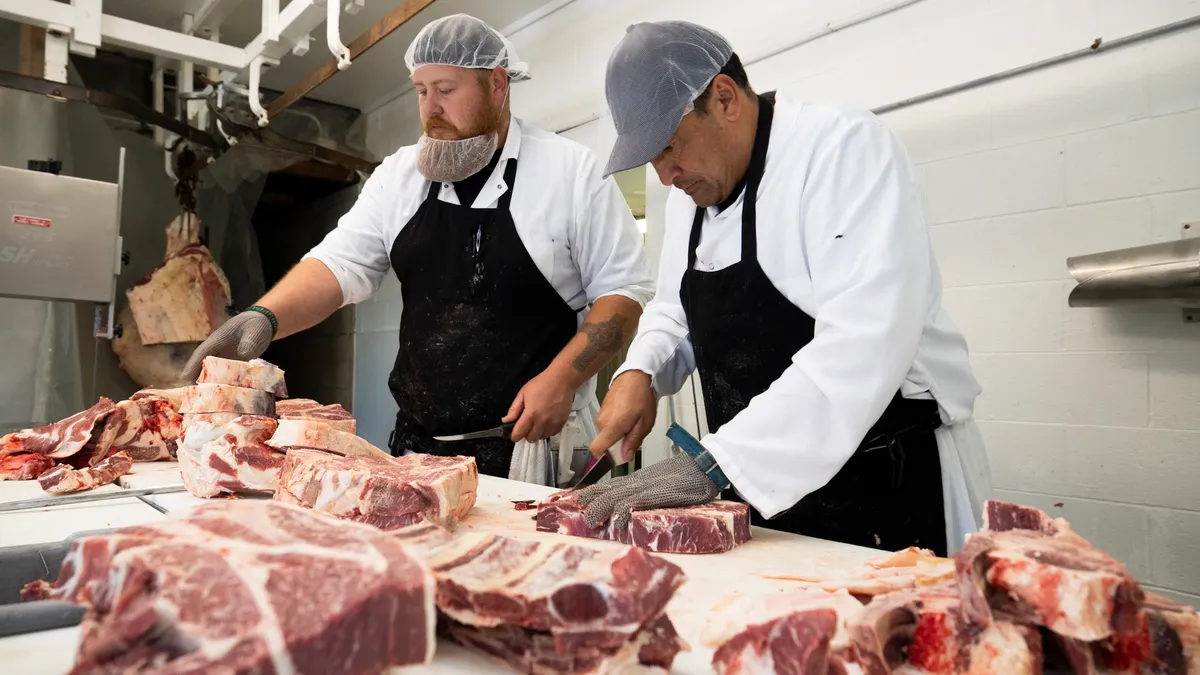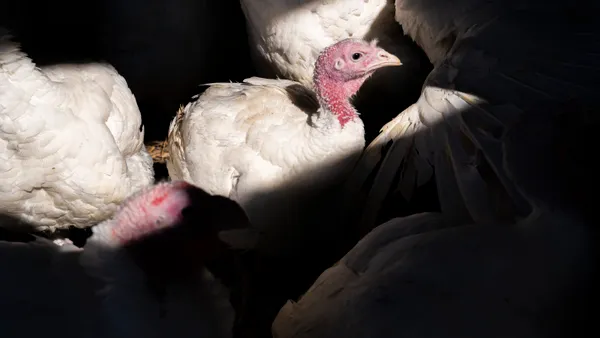Dive Brief:
- U.S. lawmakers are weighing whether to lift food inspection requirements for certain small meat operations as a way to address consolidation in the beef and poultry industries.
- A House Judiciary subcommittee hearing earlier this week about regulatory barriers in the meat industry explored whether the proposed Processing Revival and Interstate Meat Exemption Act could help small producers more effectively compete. The bill, introduced earlier this year, would allow custom slaughter facilities to sell uninspected meat directly to consumers, restaurants and retailers within state boundaries.
- Consideration of the PRIME Act comes as the Biden administration works to expand independent processing capacity and break up concentration within the meat industry, part of an overarching plan to address rising food prices while strengthening supply chains.
Dive Insight:
Although the PRIME Act has been introduced multiple times over the last few years with little traction, the Biden administration’s recent focus on addressing market consolidation within the meat industry could generate more support for the bill.
Small- and mid-size producers said at the hearing this week it can take up to six months to secure an inspection appointment. They also argue they don’t have the same resources as larger companies when an inspection goes awry.
Rosanna Bauman, co-owner and general manager of Bauman’s Cedar Valley Farms near Garnett, Kansas, testified that she lost over $80,000 after an inspector with the Food Safety Inspection Service shut down operations over a “small mechanical failure.” It took 90 days to resolve the issue, she said, noting it would have taken a larger plant mere hours.
“If I was a baby businesswoman and had the same experience, I would have folded,” she said.
But even within the meat industry, stakeholders are split on whether the PRIME Act is the best way to address a lack of competition. The National Cattlemen’s Beef Association came out against the bill in April, saying it would pose a threat to food safety and could undermine consumer trust.
“NCBA is in favor of reducing regulatory burdens, but not at the expense of food safety,” President Todd Wilkinson said in the press release. “While the PRIME Act is well intentioned, allowing uninspected beef to enter the retail market is dangerous to consumers.”
Custom slaughterhouses can currently be exempt from inspection requirements when the meat is intended for the owner, their household, guests or employees. That’s led to a complex system where producers sell portions of the animal while it is still alive so buyers can be considered co-owners, according to the National Agricultural Law Center.











